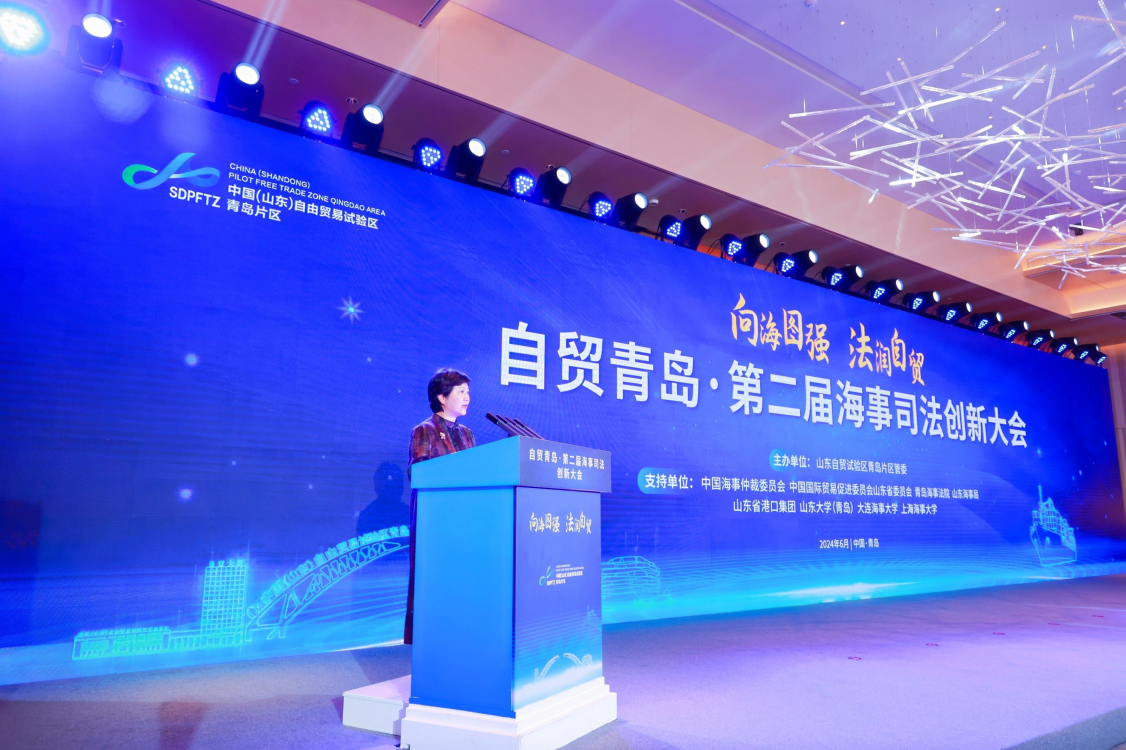The “Free Trade Qingdao - Second Maritime Judicial Innovation Conference” Successfully Held in the China (Shandong) Pilot Free Trade Zone Qingdao Area
On the morning of June 25, the “Free Trade Qingdao - Second Maritime Judicial Innovation Conference” was successfully held in the China (Shandong) Pilot Free Trade Zone Qingdao Area. The conference was hosted by the Management Committee of the China (Shandong) Pilot Free Trade Zone Qingdao Area, with support from the China Maritime Arbitration Commission (CMAC), the China Council for the Promotion of International Trade Shandong Sub-council (CCPIT Shandong), the Qingdao Maritime Court, the Shandong Maritime Safety Administration, Shandong Port Group, Shandong University (Qingdao), Dalian Maritime University, and Shanghai Maritime University. With the theme of “Strengthening Maritime Development and Legal Protection for Free Trade”, the conference attracted over 150 participants, including representatives from national maritime courts, coastal free trade zones, Qingdao government department, universities, large port and shipping logistics companies, and renowned experts and scholars in the maritime field.

Chen Bo, Deputy Secretary-General of CMAC, highlighted that CMAC plays a crucial role in promoting the healthy development of the marine economy. CMAC will continue to make solid contributions to building Qingdao into an international shipping center, financial center, and a hub facing Northeast Asia.
During the conference, Chen Bo, Deputy Secretary-General of CMAC, Meng Xiangdong, Chairman of CCPIT Shandong, Yin Jing, Member of the Political and Legal Affairs Commission of the CPC Qingdao Committee, Zhang Zimu, Deputy Director of Qingdao Municipal Transport Bureau, Guo Baocun, Deputy Director of the Management Committee of the China (Shandong) Pilot Free Trade Zone Qingdao Area, and Zhou Haiyan, Vice President of Shandong Lawyers Association jointly released the “China (Shandong) Pilot Free Trade Zone Qingdao Area Ad Hoc Arbitration Guidelines” (the “Ad Hoc Arbitration Guidelines”). The Ad Hoc Arbitration Guidelines provide enterprises and other market entities with guidance on resolving disputes through ad hoc arbitration, further optimizing the business environment of the free trade zone and promoting high-quality development.
